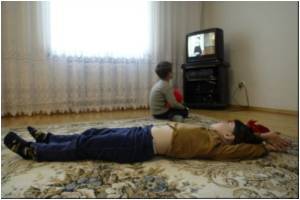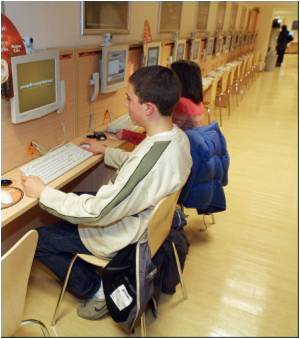Teenagers who spend too much time in front of the idiot box and computer screens are prone to severe back aches and recurrent headaches, reports a German study.

He said, "A rising prevalence of physical complaints such as back pain, neck and shoulder pain, and headache has been reported for adolescent populations. Parallel to this, adolescents are spending an increasing amount of time on screen-based activities, such as TV, computer games, or other types of computer based entertainment".
Torsheim and his colleagues also concluded that physical complaints are not related to the type of screen-based activity, but to the duration and ergonomic aspects of such activity.
"The consistent but relatively weak magnitude of associations is in line with the interpretation that screen time is a contributing factor, but not a primary causal factor, in headache and backache in the general population of Nordic school-aged teenagers," Torsheim said.
The study is published in the open access journal BMC Public Health.
Source-ANI
 MEDINDIA
MEDINDIA



 Email
Email





